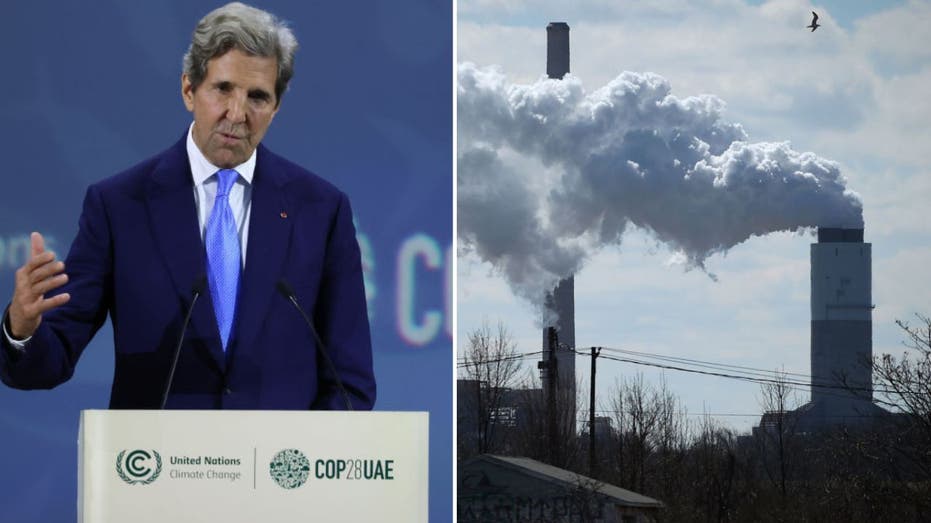Are the super-rich running out of road?
As more western governments look at ways to increase taxes for the ultra-rich, Ali Lyon asks whether it will work


As more western governments look at ways to increase taxes for the ultra-rich, Ali Lyon asks whether it will work
Kjell Inge Røkke is no stranger to relocating.
The billionaire industrialist, who started his career as a fisherman and has gone on to become one of Norway’s richest men, has already upped sticks three times in his life.
He moved to the US as a 21-year-old, where he worked his way up from fishing trawlers in Alaska to owning several multimillion-dollar companies.
Twenty years later, he returned to his native Norway a rich man, acquiring a controlling stake in what would soon be Norway’s largest private sector company Aker, making him the country’s most heavily taxed individual, according to Dagens Næringsliv, one of Norway’s leading business publications.
Then, in 2022, with Norway’s government set to double the country’s annual wealth tax, he publicly declared in an open letter to his company that he would move for a third time, and make the Swiss side of ritzy Lake Como his new primary residence.
The 65-year-old is among dozens of Norwegians to have left their home country in response to the levy, many of them choosing Switzerland – famous for its low tax, light touch regulatory environment – as their destination.
But there is a chance that, in just a few years’ time, the industrialist and his fellow émigrés might find themselves developing an incurable bout of homesickness or a sudden desire to experience the Monegasque coastline. Because in just a couple of years, Swiss nationals will head to the voting booths and decide whether to raise inheritance tax to 50 per cent for the super-rich.
The move – driven by the youth wing of the country’s Social Democrats party, which want to use the money to help fund measures to combat climate change – is a striking departure from the country’s hard-earned and longstanding reputation as a safe haven for the world’s ultra-high-net-worth individuals (UHNWIs).
But it is one that is part of an unquestionable movement across western economies – many of them hamstrung by over a decade of anaemic growth – who are turning to the world’s super rich as a precious source of revenue.
The tax man cometh
The last few months alone have given rise to several instances of western governments either resolving to close off loopholes for the wealthy, or announcing more aggressive taxes on assets and high incomes.
In the UK, Rachel Reeves revealed plans to abolish non-dom status and reform carried interest. And last week – after Starmer warned that “those with broadest shoulders” would bear the cost of the “painful” Autumn Budget – Reeves also refused to rule out bringing capital gains tax in line with income tax or reforming inheritance tax.
In Italy, the Meloni administration has pledged to double its tax on wealthy foreign residents to €200,000 (£169,400). And in neighbouring France members of the New Popular Front – an incongruous coalition of parties that won the most votes in June’s parliamentary election – have proposed a 90 per cent marginal rate of tax on top earners.
There is a similar direction of travel across the pond too, if the Democrats remain in power. The Biden administration has eyed up a wealth tax on unrealised capital gains for those with more than $100m (£76m) and a similar capital gains hike to that of Reeves; both of which Kamala Harris is expected to see through, should she be elected in October.
But perhaps the most interesting recent developments of all are those going on at an international level.
Governments acting unilaterally have always walked a tightrope when approaching how to tax the super-rich. Tax them too little, and they not only miss out on revenue but also run the risk of overseeing major rises in inequality. Tax them too much, and – like Røkke – they could just leave.
The constant fear of losing members of this lucrative cohort to other countries has led members of the G20 to work on an international commitment to tax the ultra-rich – which in this case means billionaires – ahead of their annual summit in Brazil.
The move follows a landmark report from economist Gabriel Zucman, commissioned by the host-nation Brazil, which proposed countries commit to an annual two per cent tax on billionaire wealth as a minimum.
And while the policy remains in its nascent stages, it is the first serious attempt to do internationally what many countries are seeking to do domestically.
Rising inequality and falling tax revenues
The reason behind this direction of travel is self-evident to Danny Sriskandarajah, chief executive at left-leaning think tank, The New Economics Foundation.
“There are two-and-a-half things going on,” he tells City A.M. “One is that we are seeing eye-watering levels of inequality the world over, partly driven by the massive returns to capital that people have seen the past few decades.
“Deeply related to that is what’s happening to the fiscal purse. Western governments have tended to rely on income or consumption taxes to pay for state spending, but as growth has tailed off, fiscal conditions have become tighter.
This, he argues, has led to the likes of Reeves, Harris and the G20, looking to correct the “imbalance” that exists between rates of taxation on income versus that on collected wealth and wealth appreciation.
According to one report from Oxfam, soaring stock markets, hyper-low interest rates and unprecedented levels of quantitative easing meant the wealth of the world’s ten richest men doubled during the two years of the pandemic.
“The other thing that is happening,” he says, “is the growing realisation that countries have to cooperate across borders if they’re going to have any chance of levelling the tax playing field. We’ve seen it with the global minimum corporation tax agreement [a collective commitment from OECD nations to levy corporation tax at at least 15 per cent] and are now seeing it at the upcoming G20 summit.”
Impossible to ignore among this is the political forces that fifteen years of stagnant wages and soaring asset prices produce. Since 2008, the median weekly wage in the UK has risen just 20 per cent in nominal terms, which nets out to a fall in real terms. House prices, on the other hand, have risen by 75 per cent, and had you invested £10,000 in in the FTSE 100 in March 2009, it would now be worth £30,827.
This unmooring of asset prices from incomes is similar – to varying degrees – across the developed world and, Sriskandarajah argues, helps explain the newfangled allure of tax on wealth.
Do wealth taxes work?
Few people argue against the idea that the wealthiest have benefited during the period between the financial crisis and the end of the pandemic. But there is much less consensus as to whether the drive to recoup those gains will actually work.
An annual wealth tax like the one in place in Norway, or the iteration being mooted at the G20 has several practical problems, argues Matthew Lesh, the director of public policy at the Adam Smith Institute.
“Applying taxes on individual asset classes isn’t completely unjustified,” he tells City A.M. “But once you start doing it for all forms of wealth, you run into a lot of issues trying to determine how much wealth someone actually has.
“[In the absence of a transaction] how much is someone’s art worth, how much are their vintage cars worth, how much is their jewellery worth? You’d have to make all sorts of estimates and assessments that would involve an army of people going round the country trying to assess people’s wealth.”
And aside from the practical drawbacks of applying a tax domestically, David Lesperance, a founding partner at the wealth advisory Lesperance and Associates, believes any international accord on wealth taxes would also be doomed to fail.
“The proposal outlined by Gabriel Zucman at the G20 is dead on arrival,” he says. “If one country decides to actually implement this domestically, they will see the same result that Rachel Reeves is seeing closing the remittance basis. Numerous countries will be more than happy to attract the ultra-high-net-worth individuals departing the UK to their shores.
“I wouldn’t argue that, if a tax like this one raised a lot of money, that money wouldn’t be spent on good stuff. But you’re not going to make the money.
“My life would be fabulous if I was 25-years-old, six foot five and blonde, but I’m not going to be.”
In other words, regardless of whether an attempt to raise taxes on the super-rich is coordinated across several countries, there will always be other nations ready to welcome them with open arms.
In his capitalist tome The Wealth of Nations, Adam Smith, the godfather of free market thinking, wrote: “The proprietor of stock is… not necessarily attached to a particular country. He would be apt to abandon the country in which he was exposed to a… vexations inquisition… for a burdensome tax, and would remove his stock to some other country.”
Whether or not a 50 per cent inheritance tax or an internationally agreed billionaires’ tax is “vexatious” enough to make Mr Røkke move a fourth time, remains to be seen.



